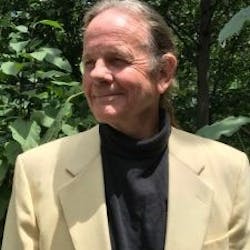Building communities from the rubble of a war-ravaged world: Process, principles, and institutions
- Details
- Resources
After the destruction of war, the materialistic approach to rebuilding communities falls short of true development because it does not address the spiritual components that build capacity and unity among the local inhabitants. Imagine an approach that merges Bahá’í principles with urban design and landscape architecture. We present a prototype in the spirit of ‘Adasiyyah using scientific agriculture and networking to regenerate a local economy by following the cycle of action and reflection set forth by the Universal House of Justice.
Deepening questions
- How do the principles of the Revelation of Bahá’u’lláh merge with the expertise of an urban designer and landscape architect to form a prototype process of community rebuilding?
- How does the inherent power of modern networking connect people and unite our community centers for worship and education?
- How does the capacity of active networks form the vibrant hub of a learning community whose material and spiritual growth follow the cycle of action and reflection set forth by our Universal House of Justice?
- How is the prototype of the Bahá’í-inspired community of the future similar to ‘Abdu'l-Bahá’s exemplary land reclamation project in ‘Adasiyyah, and how is it different?
- In addition to rebuilding war torn cities, where else can the prototype model be applied?
James Craig
Urban designer and landscape architect, James Craig, witnessed real calamity by surviving ethnic cleansing in Sarajevo. When he returned from Bosnia, he founded a network of universities called The Global Network for Rebuilding to prepare rebuilding plans for Bosnia. James taught, lectured, and worked with students to produce plans to unite the people of Bosnia. He delivered the work products of university architects and planners to Bosnia and Kosovo to support rebuilding projects. Since 2000, James has applied Bahá’í principles to rebuild a low equity neighborhood in Birmingham, Alabama.

46th Annual Conference
The views expressed in this recording are those of the presenter and do not necessarily represent the views of the Association for Bahá’í Studies, nor the authoritative explications of Bahá’í writings.